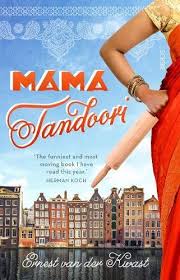My sole experience of Japanese literary fiction is Yoko Ogawa’s “The Memory Police” (2019), admittedly a good one as I rated it five stars and it ended up at #4 in my Top 10 Books Of The Year in 2020. I thought that might start off a surge of reading Japanese novels in translation but that hasn’t happened until now with this book, which was a best-seller in the author’s homeland when published in 2017 and here available in a translation by Polly Barton.
Rika Machida, a journalist, becomes fascinated by the case of convicted female serial killer Manako Kajii who dispatched three men she had relationships with over a six month period and attempts to befriend her to get her to agree to an interview at the Detention Centre where she is incarcerated. Kajii is a devotee of fine food and Rika discovers the way to get her talking is to pursue similar experiences of food and report these back to her. This leads to a cholesterol-drenched, sensual tale which probably wouldn’t win that many fans amongst vegans but which I found really quite appealing.
It really only works within its Japanese framework. A movie/tv adaptation which relocates this to the US or UK would just seem strange and implausible as alongside all the food and the rights and wrongs of Kajii’s case is the Japanese view towards women and the social pressures for people to ensure that they are not overweight and always making an effort with their appearance.
It is overlong and tends to go over the same points as characters analyse one another’s behaviour and anyone expecting a Japanese “Silence Of The Lambs” will be disappointed but as a tale of society’s expectations, of manipulation and of loneliness it is really very effective. And the food! Asako Yuzuki really goes to town with getting the smells and tastes of all this gastronomy across, even when I wasn’t sure what the foods being mentioned, prepared or eaten actually were, my mouth was often watering. Manako Kajii’s enthusiasm for the best quality butter denied her in prison has an impact on all the other characters, physically, certainly in Rika’s case, but emotionally for all. There are elements of mystery regarding the conviction and one character does stretch plausibility with her actions but tied up within the Japanese perspectives this doesn’t grate too much.
This was another very good experience of Japanese fiction for me suggesting this is a literary culture I would do well to explore further.
“Butter” is published in the UK on February 29th 2024 by 4th Estate. Many thanks to the publishers and Netgalley for the advance review copy.














